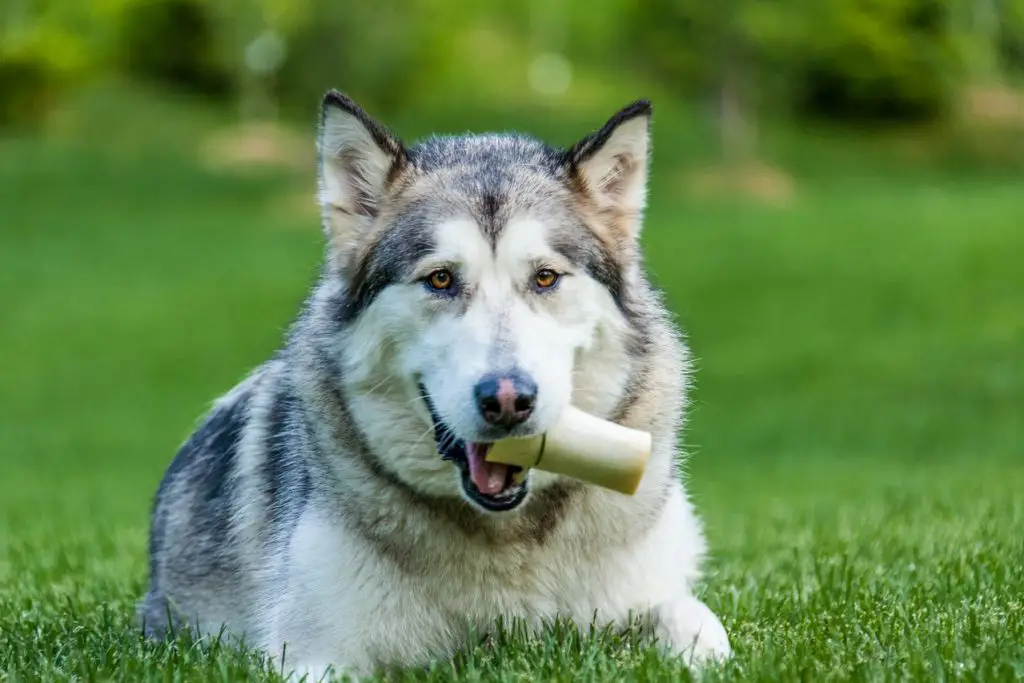While deer bones may not be edible, they are great for aggressive chewers. Some people give them to their dogs as knuckle bones. This is a deceptively large bone that doesn’t have real knuckles. Instead, it has a large knobby part called the epiphysis on each end. This is a safe way to give your dog a treat while still giving them a nutritious source of protein.
Cooked deer bones are brittle
A dog can benefit from chewing on deer bones. While they may be a little brittle, all bones can contribute to proper dental care. Chewing on bones strengthens teeth and jaw joints, and it encourages your dog to produce more saliva with a more basic pH. Tooth decay is caused by acidic saliva, while alkaline saliva prevents cavities.
However, it is best to make sure that your dog does not chew on the bones before they are cooked. Although deer bones are considered safe for dogs to eat, they can contain bacteria and may become brittle and dangerous for your dog if left unchecked. As with any bone, deer bones can break or chip your dog’s teeth if left unchecked.
They easily break into sharp shards
The meat from deer is nontoxic and entirely natural. While deer legs and jaws are not healthy for dogs, they can be healthy for their diet. Besides, recreational bones also help your dog’s teeth and jaws. However, dogs must be monitored closely while chewing bones. Chewing raw meat can cause botulism, a rare but deadly paralytic disease in dogs. The neurotoxin that causes botulism is a type of bacterium called Clostridium botulinum and is produced by this bacterium.
Although deer bones are edible, it is not safe to feed a dog antler. The deer antlers are extremely hard and can cause damage to the dog’s gums. They can also splinter and cut the delicate tissues in the digestive tract. A cut in these areas can be painful or even life-threatening. Additionally, deer bones can cause internal damage to your dog. These shards can cause pain and even cause bleeding if swallowed by your dog.
They contain protein and amino acids
Can dogs chew on deer bones because they are full of protein and amino acids? Yes, as long as you avoid allowing them to swallow the entire bone in one sitting. Deer bones are naturally high in protein and amino acids, and contain calcium, iron, manganese, and other essential nutrients for your dog. Because they don’t contain grains or other substances, they are naturally gluten free. While some dogs may be inclined to chew on a whole bone at once, others may prefer to bite off pieces of the bone and eat only part. The chewing motion will help remove plaque and tartar from the teeth and gums. In addition, the saliva produced by a dog will wash away any food particles that might have remained after the bone has been ingested.
The nutritional value of deer bones varies according to the size and breed of your dog. However, it is considered a safe source of protein for dogs with common protein allergies. While you should avoid feeding your dog with deer bones that are more than three months old because they tend to accumulate high levels of pollutants and toxins. However, young deer bones are lower in these pollutants. Hence, deer bones are an appropriate treat for small dogs.
They pose a choking hazard
Small dogs shouldn’t be allowed to chew on deer bones because they can choke. However, larger dogs can chew on these bones. While the bones are small, they can splinter and cause intestinal damage. If your dog wolfs things down quickly, don’t let it get near the bones. Instead, give them a few minutes to chew on them. This way, you can keep an eye on your dog and prevent any trouble.
Deer bones are not a choking hazard when cooked, but they are hazardous when not cooked properly. The deer bones have too many small pieces that can block a dog’s airway. While this is not usually fatal, it’s important to watch your dog closely when it is eating deer bones. In addition, you should never allow your dog to swallow the bones whole.
They can cause intestinal damage
Dogs can get infected with bacteria and viruses through raw bones. While most dogs do not develop an illness from chewing on raw bones, there are certain risks that are worth considering. One risk involves the bacteria Escherichia coli, which is responsible for stomach pain and diarrhea in humans. The bacteria can also lead to intestinal damage and lead to a life-threatening condition known as hemolytic uremic syndrome. While many kinds of E.coli are harmless, some can cause damage to the dog’s intestines and stomach.
If a dog swallows a bone fragment, it can damage the intestines, mouth, or stomach. A large bone fragment may not pass out of the stomach and may be stuck there for days or weeks. In such a case, your dog may have multiple splinters and require surgery to remove them. However, there are ways to treat this problem. A vet can use x-rays to determine where the fragment is.


